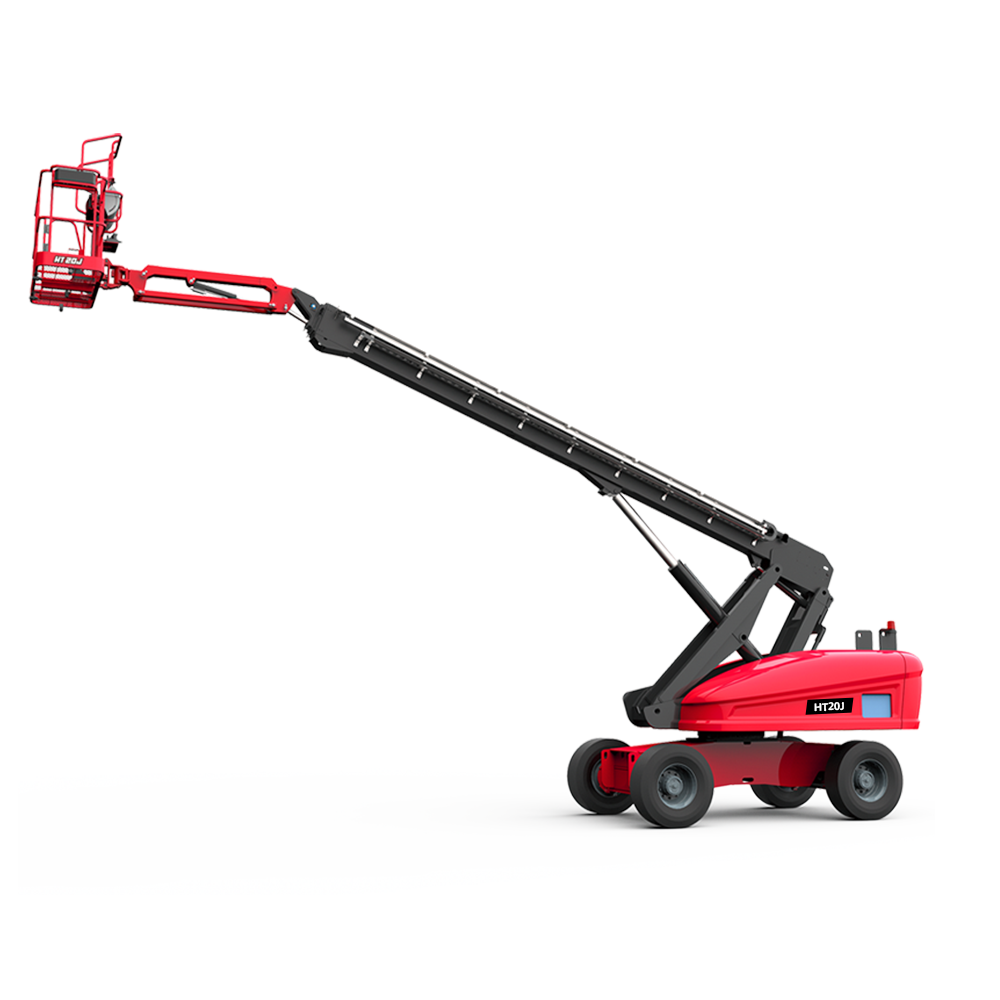Environmental Impact and Sustainability of Diesel Telescopic Boom Lifts
Diesel telescopic boom lifts are essential for many industrial applications, providing the power and reach needed for high-elevation tasks. However, their environmental impact, primarily due to diesel fuel consumption and emissions, is a significant concern. This article examines the environmental impact of Diesel telescopic boom lifts and explores strategies for improving their sustainability.
Emissions and Air Quality
Diesel engines are known for their robust performance and fuel efficiency, but they also produce emissions that can negatively impact air quality. Diesel exhaust contains pollutants such as nitrogen oxides (NOx), particulate matter (PM), carbon monoxide (CO), and hydrocarbons (HC). These pollutants contribute to air pollution, smog, and respiratory health issues, particularly in urban and industrial areas.
Efforts to mitigate these emissions have led to the development and implementation of stringent emission standards. Modern diesel telescopic boom lifts are equipped with advanced emission control technologies, including diesel particulate filters (DPF) and selective catalytic reduction (SCR) systems. These technologies significantly reduce the levels of harmful emissions, making newer models much cleaner than their predecessors.
Fuel Consumption and Efficiency
Fuel consumption is another critical factor affecting the environmental impact of diesel telescopic boom lifts. Higher fuel consumption not only increases operating costs but also contributes to greater greenhouse gas (GHG) emissions. Improving fuel efficiency is therefore a key focus for manufacturers and operators aiming to reduce the environmental footprint of these machines.

Innovations in engine design and fuel management systems have led to more fuel-efficient diesel engines. Technologies such as turbocharging, direct fuel injection, and electronic control units (ECUs) optimize fuel combustion, reducing fuel consumption and emissions. Regular maintenance, including timely oil changes, air filter replacements, and fuel system cleaning, also helps maintain fuel efficiency and prolong the lifespan of the equipment.
Hybrid and Alternative Fuel Solutions
One of the most promising developments in reducing the environmental impact of Mobile Diesel Telescopic Boom Lifts is the introduction of hybrid and alternative fuel solutions. Hybrid boom lifts combine diesel engines with electric motors, allowing operators to switch between power sources depending on the task. This flexibility reduces diesel fuel consumption and emissions, particularly in low-power operations or idle periods.
Alternative fuels, such as biodiesel and renewable diesel, offer another pathway to sustainability. These fuels are derived from renewable resources and produce lower GHG emissions compared to traditional diesel. Using biodiesel or renewable diesel in diesel telescopic boom lifts can significantly reduce their carbon footprint while maintaining performance and reliability.
Energy Regeneration Systems
Energy regeneration systems capture and reuse energy generated during certain operations, such as lowering the boom or braking. This technology reduces the overall energy consumption of the lift and improves fuel efficiency. By harnessing energy that would otherwise be wasted, these systems contribute to more sustainable and cost-effective operation.
Noise Pollution
Diesel engines are typically noisier than electric or hybrid engines, contributing to noise pollution, especially in urban and residential areas. Noise pollution can have adverse effects on human health, including stress, sleep disturbances, and hearing loss. To address this issue, manufacturers have developed noise reduction technologies, such as improved engine insulation and quieter exhaust systems. These advancements help minimize the noise impact of diesel telescopic boom lifts, making them more suitable for noise-sensitive environments.
Sustainable Practices and Policies
In addition to technological advancements, adopting sustainable practices and policies is crucial for reducing the environmental impact of diesel telescopic boom lifts. Operators can implement measures such as regular maintenance, efficient route planning, and training programs focused on eco-friendly operation. These practices not only enhance sustainability but also improve operational efficiency and reduce costs.
Furthermore, companies can pursue certifications and standards that promote environmental responsibility. Certifications such as ISO 14001 for environmental management systems demonstrate a commitment to sustainability and can enhance a company’s reputation and competitiveness.
Conclusion
While diesel telescopic boom platforms have an inherent environmental impact due to fuel consumption and emissions, significant progress has been made in mitigating these effects. Advanced emission control technologies, improved fuel efficiency, hybrid and alternative fuel solutions, and energy regeneration systems are all contributing to more sustainable operation. By adopting these technologies and sustainable practices, operators can reduce the environmental footprint of diesel telescopic boom lifts while maintaining their essential role in industrial applications. As the industry continues to innovate, the future of diesel telescopic boom lifts looks promisingly greener.

Comments
0